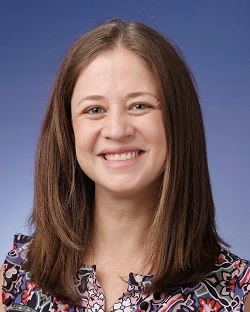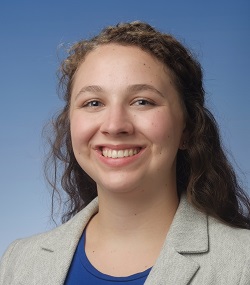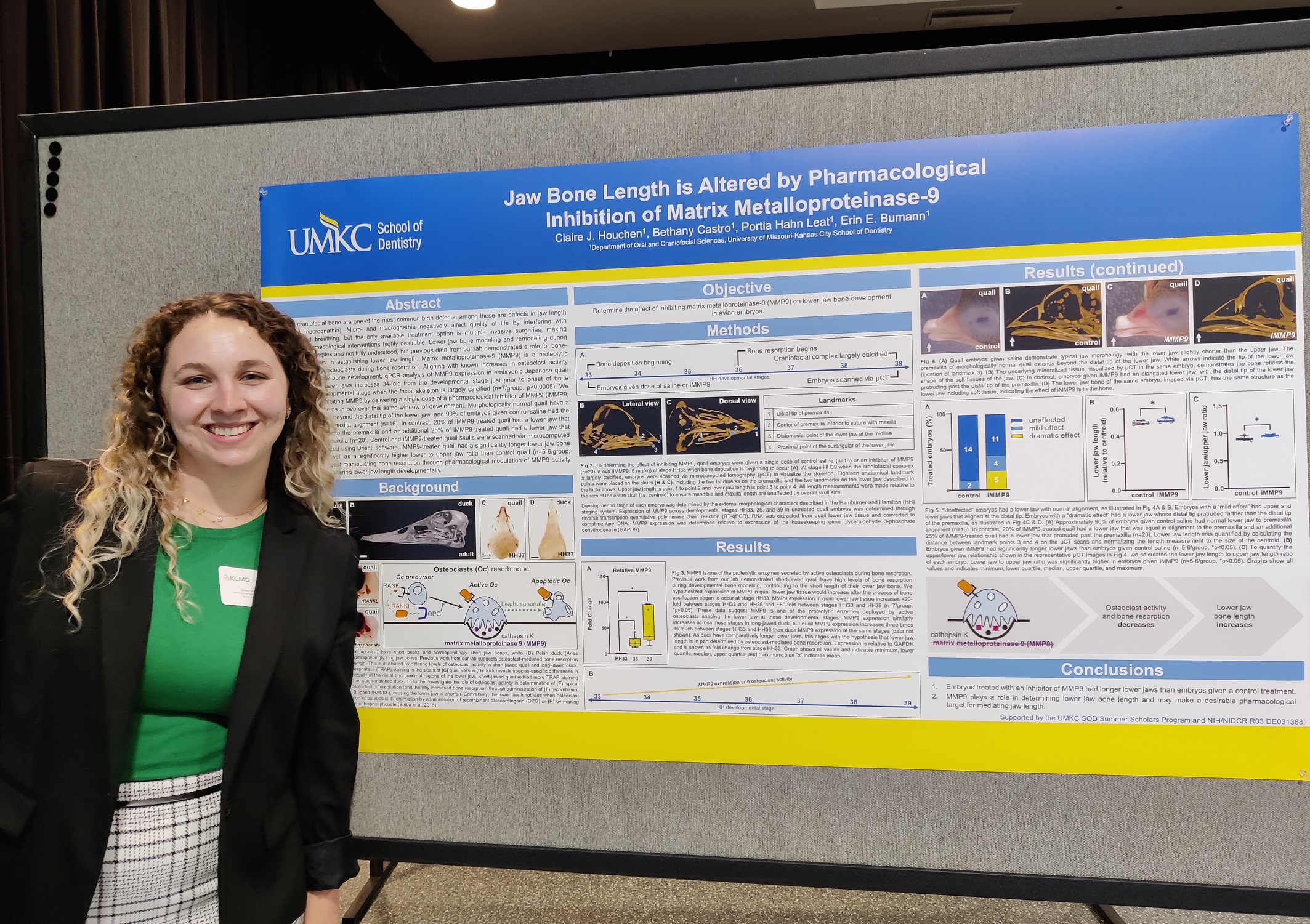Roos don’t just dream, they do. Our students turn ideas into action every day. Get to know our people and you’ll know what UMKC is all about.
Claire Houchen
Graduation year: Spring 2024
UMKC degree program: M.S. Informatics
Hometown: Louisburg, Kansas
In the final year of her undergraduate studies, Claire Houchen was looking to expand her research experience. She recognized the value of mentorship early in her career, so she emailed a former professor who helped her make a valuable connection.
Houchen, M.S. bioinformatics ’24, was able to meet with Erin Bumann, D.D.S., Ph.D., assistant professor, Department of Oral and Craniofacial Sciences just before the COVID-19 pandemic shutdown.
“I had a good feeling,” Houchen says. “I felt like this was the right place for me and the right time.”
Bumann was impressed by Houchen’s accomplishments, which included working in a research lab immediately after high school.

“You could tell that Claire was someone who was really ambitious, dedicated and interested. All of those things are very important when getting started in a research lab,” Bumann says.
Bumann had mentors who were instrumental to her success when she was a student.
“Without the mentorship I received during my undergraduate studies, dental school and post doctoral training, I wouldn’t be in the position that I’m in today,” Bumann says.
Both women agree that a strong connection between the mentor and mentee is important to the relationship.
“Dr. Bumann and I have a constant flow of conversation,” Houchen says. “We are always talking about everything related to our careers. I think this impacts my professional journey as well as my educational one.”
Bumann notes that one of the keys to a successful mentor/mentee relationship is that both sides are willing to invest significant time and focus to make the experience successful.
“Compassion, honesty and an investment in growth are important, and I think that needs to come from both sides,” Bumann says. “And this is true of Claire, but in general one of the most wonderful things about having students in the lab is the energy it brings.”
Despite the camaraderie, biomedical science is challenging. Mentor support can make a difference.
“When we’re doing experiments on the bench, failure is inevitable and that’s tough,” Houchen says. “Sometimes it’s discouraging and overwhelming, but you learn from it and move forward. In addition, navigating science culture can be challenging, especially if your position is underrepresented. At times, I think the way that Dr. Bumann challenges me is just by telling me to hang in there. It’s easier said than done, but it’s helpful to have someone walk you through what it looks like.”
While there are formal mentoring programs in place, Bumann encourages students not to wait for a professor or someone else to suggest it.

“Lots of people are willing to mentor students, but the student may need to initiate. Just put yourself out there. You never know how a mentoring relationship might change your life.”
Houchen has reached out to potential mentors throughout her education. She agrees that students may need to take the initiative, but they are likely to benefit.
“As an undergraduate I had a biology professor who I respected. I really enjoyed talking to her and would go to her office hours. I’m still in touch with her.”
Bumann has witnessed Houchen in the mentoring role as well.
“Claire helps the undergraduates in the lab with their projects, so not only is she growing from mentoring herself, but she is taking it to the next level and being a mentor for others.”

